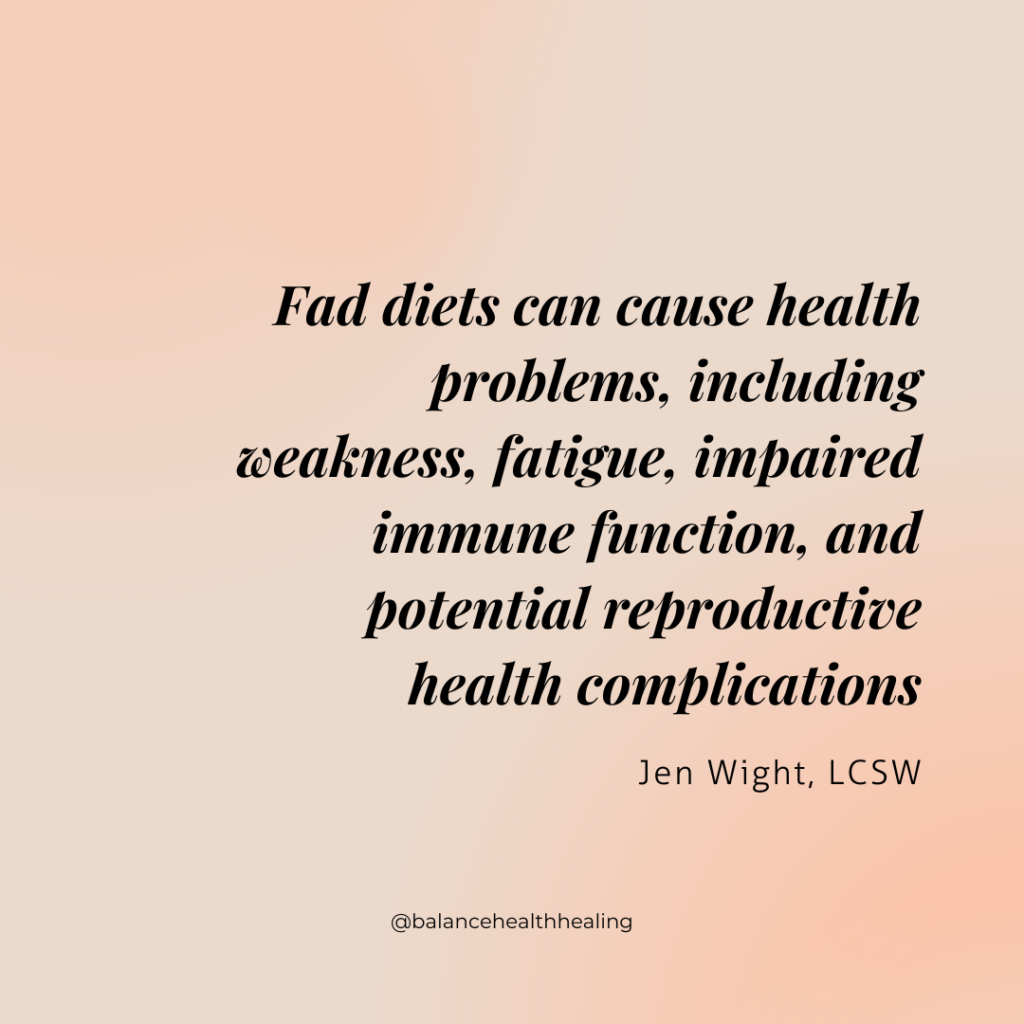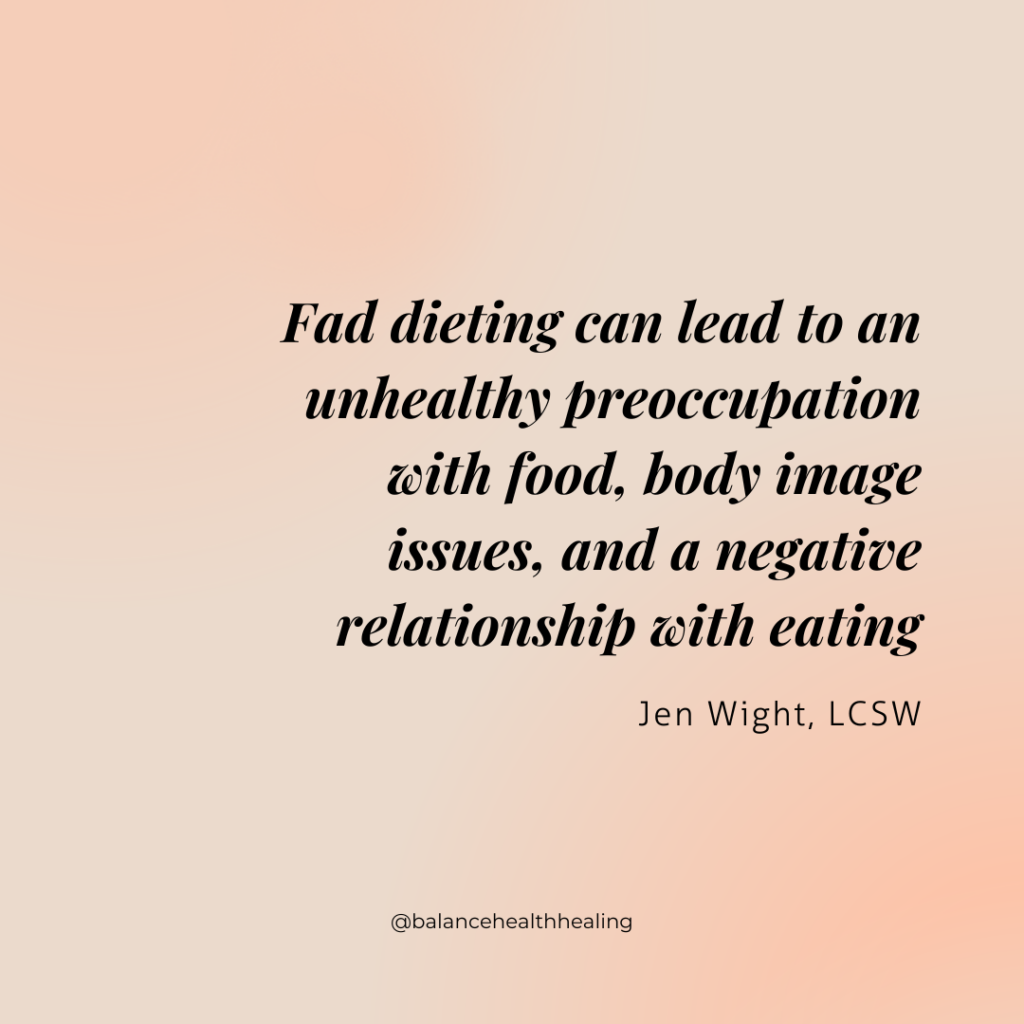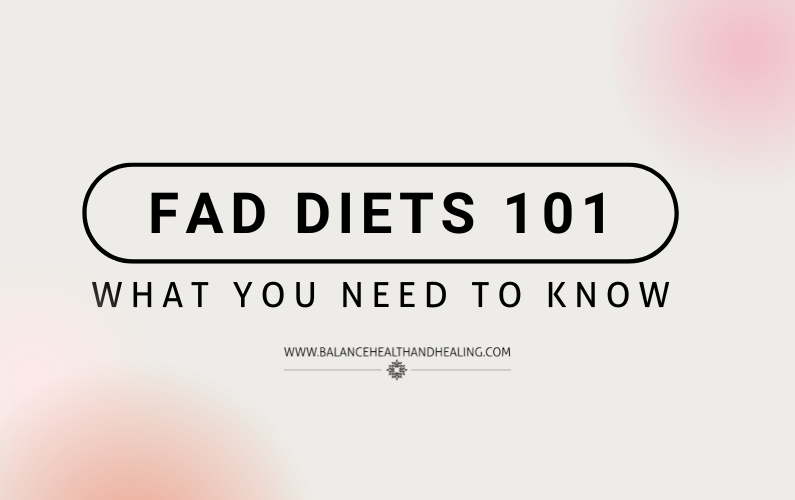Fad Diets 101- What You Need To Know:
It’s a conversation you can probably relate to:
– “I’m doing [insert fad diet here], have you heard of it?”
– “I can’t have that, I’m on [some wonky food plan an influencer shared] Haven’t you heard? [Completely normal food item] is causing us all to ruin our gut health.”
– “Ugh! I am starving, I’m doing [newest diet craze] and I can’t eat for another four hours.”
 Fad dieting is rampant in our day and age- leaving you faced with the temptation to follow popular diets that promise quick weight loss or other health benefits, yet are often based on shady scientific “evidence” or unsustainable eating patterns. While these diets may in fact yield quick results, they pose significant risk to your health.
Fad dieting is rampant in our day and age- leaving you faced with the temptation to follow popular diets that promise quick weight loss or other health benefits, yet are often based on shady scientific “evidence” or unsustainable eating patterns. While these diets may in fact yield quick results, they pose significant risk to your health.
Here are a few risks to consider the next time your coworker or loved one starts up again and has you contemplating joining in on the latest fad diet:
- Nutrient deficiencies: Fad diets often restrict certain food groups or severely limit calorie intake, leading to potential nutrient deficiencies. Such imbalances can cause health problems, including weakness, fatigue, impaired immune function, and potential reproductive health complications.
- Unsustainability: Fad diets are typically difficult to sustain over the long term due to their restrictive nature or the elimination of entire food groups. This can lead to feelings of deprivation, frustration, and a higher
 likelihood of binge-eating or rebound weight gain once the diet is discontinued. The net result? Often it’s patterns of yo-yo weight adjustments as you deprive and then recover during dysfunctional dieting patterns.
likelihood of binge-eating or rebound weight gain once the diet is discontinued. The net result? Often it’s patterns of yo-yo weight adjustments as you deprive and then recover during dysfunctional dieting patterns. - Muscle loss: Many fad diets focus primarily on rapid weight loss, which often includes a loss of muscle mass. Losing muscle can slow down your metabolism and make it challenging to maintain the new number on the scale in the long run.
- Disordered eating patterns: Fad dieting practices contribute to the development of disordered eating patterns. These conditions have serious physical and psychological consequences.
- Lack of evidence-based research: Fad diets lack scientific evidence to support their claims. They often rely on anecdotal success stories or cherry-picked research, which can be misleading and potentially harmful.
- Impact on mental health: Fad dieting can lead to an unhealthy preoccupation with food, body image issues, and a negative relationship with eating. This can contribute to increased stress, anxiety, and a reduced quality of life.
It’s important to remember that beyond fueling our bodies, food provides ways for us to connect with a loved one over a shared meal, bring joy into our lives in times of celebration, and offer comfort when we face hard days. Our overall health goals are best achieved through a balanced- not rigid or experimental– approach to nutrition and lifestyle.

